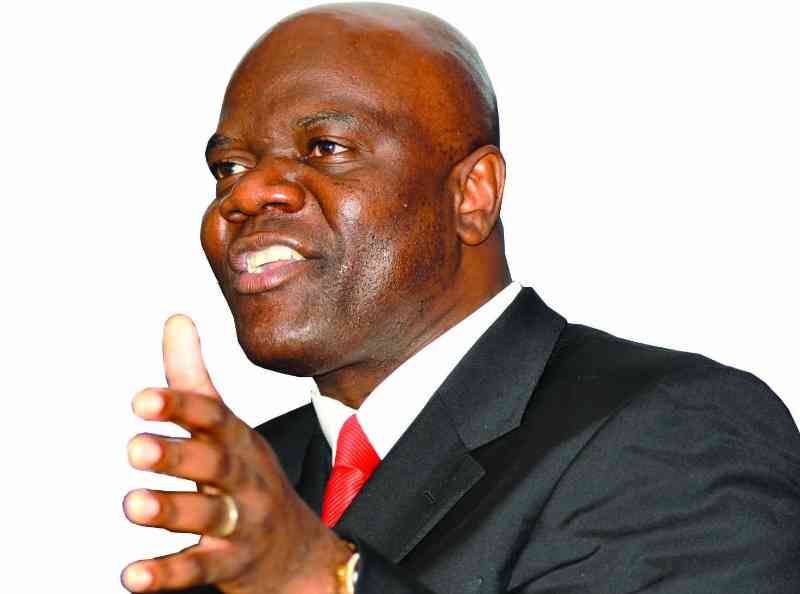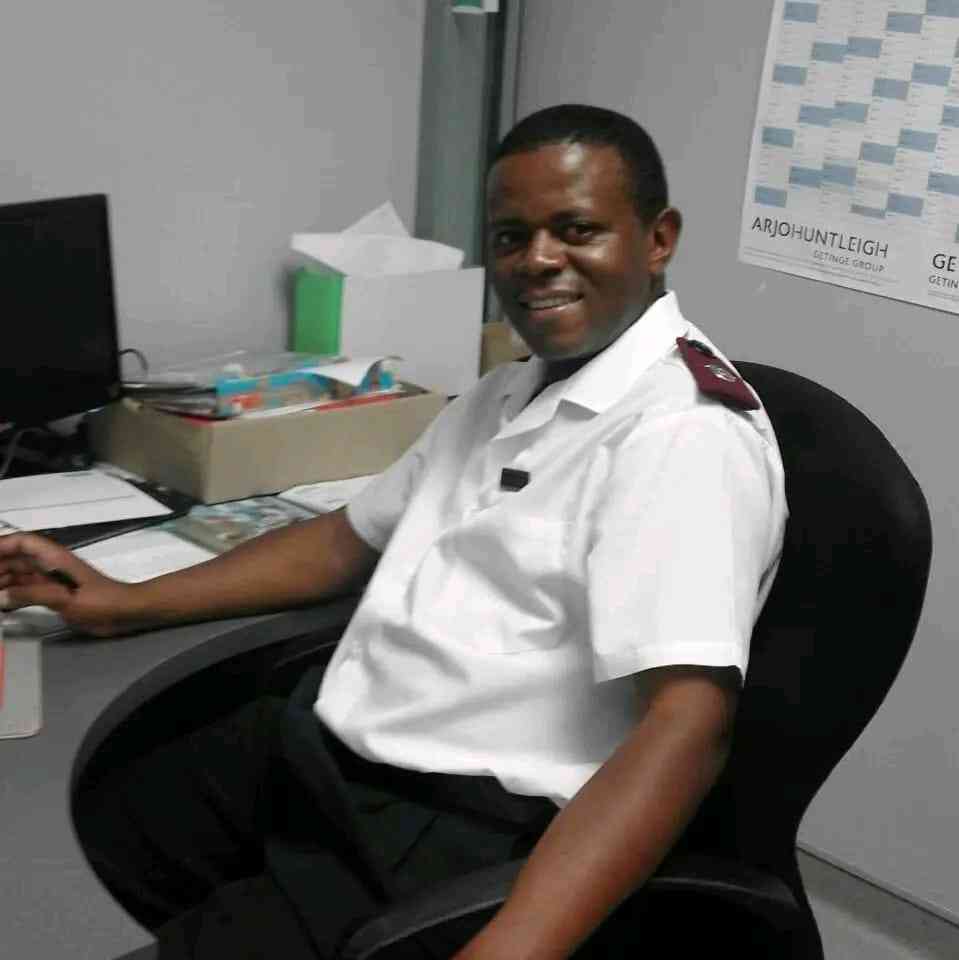
To mention Zimbabwe and the idea of a “dream” in the same sentence, as Professor Arthur Mutambara has done, is to be provocative and challenging.
The provocation and the challenge come from the troubling Zimbabwean economic and political condition that can only be accurately described in terms of things nightmarish and horrific.
In his latest book: Ideas and Solutions – In search of the Elusive Zimbabwean Dream- An Autobiography of Thought Leadership VIII, Mutambara has written a troubling book about a troubled country.
In projecting the “Zimbabwean dream”and describing the possible Zimbabwean “promised land”, Mutambara becomes a tragic optimist who is clear about the trouble that Zimbabweans are in but much stubbornly holds onto the faith that the country, its polity and economy, can be recovered from the current state of chaos and dysfunction.
In this difficult assignment, Mutambara deploys his formidable brain to describe a Zimbabwean utopia in the midst of national dystopia and darkness.
As such, the voluminous book is an account about tragedy rendered in lucid prose and an optimistic tone of a political idealist.
In form and in content, the book is a dramatisation of the battle between political idealism and political realism over a country that moved from the fire of Rhodesian settler colonialism into the pan of Zimbabwean native colonialism.
If I was a random cynic that did not know and understand the nobility of Mutambara’s intellectual humanism and political nobility, I was not going to succeed in resisting the temptation to accuse him of being a busy and bored intellectual that that has deployed the privilege of his brain to carry out some thought-experiments over a dying country.
- Mavhunga puts DeMbare into Chibuku quarterfinals
- Open letter to President Mnangagwa
- Feature: ‘It’s worse right now than under Mugabe’: Sikhala pays the price of opposition in solitary cell
- Masvingo turns down fire tender deal
Keep Reading
Contrary to the temptations of random cynicism, Mutambara has applied the wealth of his trained mind and world experience to offer compelling thought leadership in the shape of a graphic account of how a troubled postcolonial country can be recovered from collapse and restored to success.
The book benefits from Mutambara’s biography (life journey) and geography (his travel, education and training in different parts of the world) to provide a convincing picture of Zimbabwe’s possible return from degeneration over the decades to recovery and eventual success.
In adumbrating on the “Zimbabwean dream” and “promised land” Mutambara takes the critical risk of joining the chorus of naïve idealists about Zimbabwe.
He rescues himself from the risk with a critical awareness and description of the real political problems of hate, evil, violence, the corruption and mediocrity of leadership, that burden Zimbabwe.
Mutambara’s political idealism as represented in the present book is a critical idealism that is rooted in political realism, a kind of political optimism whose light depends on the darkness of a pessimistic reality for its life as political thought and light.
Every light, after all, needs some darkness to be seen.
The Zimbabwean nightmare
Two stubborn nightmares haunt Africa and the Global South.
The first nightmare is that African struggles against colonialism only delivered fragile political independence and not full liberation of the continent and its troubled populations.
The second nightmare is that Africa is the richest continent in natural resources while its people remain the poorest under the sun.
These twin African nightmares are co-constitutive horrors that have paradoxically given birth to each other while each one keeps the other alive and well.
Incomplete liberation from colonialism and natural resources that are not translated into prosperity and happiness of African populations are the very curse of Africa.
Combined, these nightmares have turned the Global South and Africa into a diabolic crime scene where the worst that could happen politically and economically has already happened while there is no sign that any enforcement of law and justice are about to take place, making the continent a province of hell on earth.
It is not an exaggeration that in this province of hell on earth Zimbabwe, with all its now well known political and economic catastrophes and tragedies, is a particularly hot district, probably the devil’s own headquarters where every problem comes down in extremes.
The worst of the economic and political catastrophes of the Global South in general and Africa in particular are to be found in Zimbabwe where the leadership, their families and fronts have grouped themselves into a powerful cult that is looting national resources at a pace and depth that can only be compared to literally eating the country up while the majority of Zimbabweans drown in poverty.
This cult has over time sought, found and kept political power by a combination of force and electoral fraud of biblical scale.
There is no political or economic alternative in sight as, daily, Zimbabweans sink deeper into misery and victimhood.
In all this darkness, what many Zimbabweans from their experience, do not see and what even some astute African political observers and analysts are blind to is that the cult has never been more fragile and vulnerable.
The same cult that moved Zimbabwe from Rhodesian settler colonialism to its native colonialism has become vulnerable under its own weight and power.
Their immense power has become their consuming weakness.
The leadership of the cult are terrified, they are afraid of the people, of their own security that has grown into insecurity.
They are afraid of themselves, what they have done and cannot undo, and their immense wealth that they might soon no longer be able to hide and protect anywhere in the world.
The high walls of political power and security have turned from fortresses to faultlines of insecurity, powerlessness and fear in high places.
It is a specifically Zimbabwean paradox that the cult that has conquered and dominated the economy and the polity will soon need to be liberated by its victims, the multitudes of Zimbabwe that have nothing more to lose except their victimhood.
Never mind the haughty bold speeches and agile strides of the leaders, there is fear in palaces and real trouble in paradise.
The guilty are full of fear that even their own shadows now scare them.
It is this fear, of both the victims and their victimisers, that is the seed of a new Zimbabwe.
Fear will be the oxygen of history.
Why read Mutambara today?
There must be reason behind every reading because not everything that has covers and pages is a book.
I have said it before that not all book writers are authors whose writings must be read.
Being an author comes with some authority that the writer lends to the book.
Scholars and their cousins, the journalists, understand better the currency of authorial authority.
Mutambara is an entire full professor and executive director of the Institute for the Future of Knowledge at the University of Johannesburg in South Africa.
He has worked in many fancy and high places, in America and elsewhere, and that includes his tenure as deputy prime minister of the Zimbabwean government of national unity (GNU) from 2009 to 2013.
As such Mutambara has something rewarding to say about the Zimbabwean experience and condition, starting with “a rocky start to the GNU in 2009” to “grappling with the national agenda of Zimbabwe” to disclosing the “new nuggets of insight” about “Mugabe and the liberation struggle”.
The book explodes some myths about some Zimbabwean politicians and exposes some disturbing, but important political secrets that have so far been kept away from unsuspecting Zimbabweans by politicians in the ruling party and the opposition.
The political pentecost
What Mutambara defines as the “Zimbabwean dream”, a vision that will lead to the ‘promised land, “a political desire for a country that enjoys peace, equality, stability, inclusive democracy and shared economic prosperity”.
All these desirables are spectacularly missing in present Zimbabwe.
As such, Mutambara asks Zimbabweans for what I can describe as a political pentecost where Zimbabweans from different and opposing political parties and positions can meet above their divides and be inspired to agree on working together towards the ‘promised land’ that should also be agreed on.
Mutambara asks for this political pentecost knowing that the bad political leadership and bad political followership in Zimbabwe, in the opposition and the ruling cult, will resist the change of political culture that a new Zimbabwe demands.
Those that are benefitting from tyranny, political violence, corruption and evil will resist change.
The Zimbabweans that will benefit from positive change will also resist change because they have for far too long been accustomed to the toxic political status quo that has been systematically naturalised and normalised.
The fear of change and the chilling uncertainty about freedom envelopes Zimbabweans and that makes the work for political thought leaders and game changers even more difficult.
But that is no reason to resign to despair.
Not in so many words, Mutambara is inviting Zimbabweans to a new liberation struggle that will seek to liberate the oppressed and their oppressors into a new and different Zimbabwe.
What Mutambara has written is a punchy book about the difficulty and also the possibility of liberation that entails the end of oppression in the sense that both oppressive Zimbabweans and the oppressed Zimbabweans must come to an end so that new Zimbabweans can be born as survivors and winners that will join other Africans in building a united Africa that will speak to the world in one powerful voice.
*Dr William Jethro Mpofu is a researcher at the University of the Witwatersrand, in South Africa, and a senior research Associate at Good Governance Africa, Sadc region.









